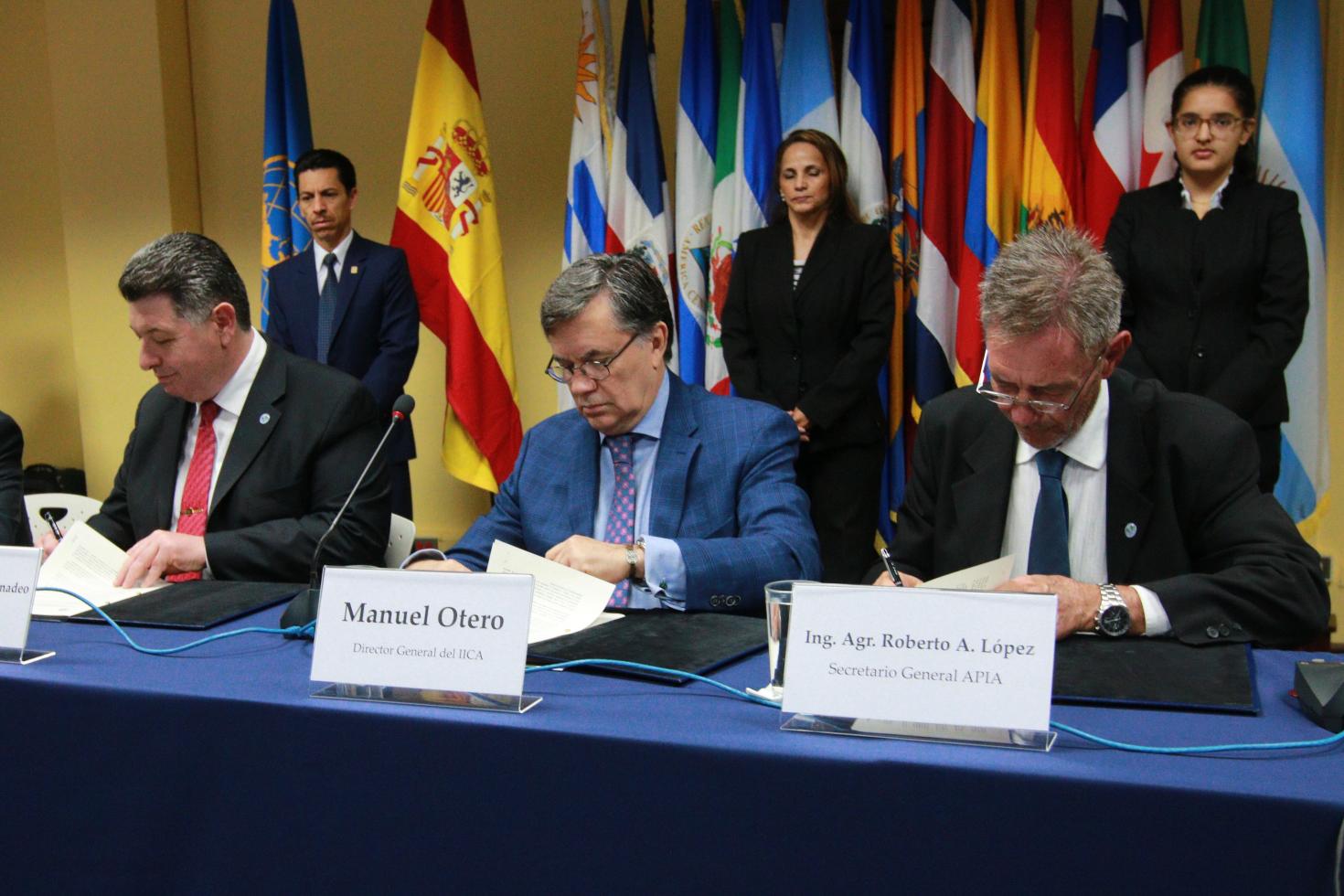Manuel Otero, Director General of the Inter-American Institute for Cooperation on Agriculture (IICA) and Alejandro Bonadeo, President of APIA, signed a technical cooperation agreement to undertake joint initiatives focusing on innovation, competitiveness and the environment to boost the agriculture sector of the Americas.

San José, Costa Rica, 9 November 2018 (IICA). The Inter-American Institute for Cooperation on Agriculture (IICA) and the Pan-American Association of Agricultural Engineers will partner to implement a series of initiatives to increase competitiveness, technology use and efficient natural resource management in the Latin American and Caribbean agriculture sectors.
These were the agreed objectives outlined by Manuel Otero, Director General of IICA and Alejandro Bonadeo, President of APIA, on signing the cooperation instrument between both organizations today at IICA Headquarters in San José, Costa Rica.
The strategic partnership between the specialized agricultural agency and APIA will lead to actions focusing on innovation and the competitiveness of agricultural value chains; climate change and agricultural resilience; the cultivation and distribution of biofortified crops; and landscape and soil restoration.
It will also promote public-private partnerships for proper management of natural resources by the agriculture sector and the use of information technologies and expertise for capacity development in the Americas.
The head of IICA remarked that agriculture is a priority sector for the development of peoples in the Americas. “IICA’s task is to drive a renewed vision for agriculture by providing strategic technical cooperation through consortia that include the participation of the public and private sectors, NGOs and international organizations. Therefore, I reiterate my commitment to this agreement. We now face the greatest challenge: to put into practice the agreement signed today,” stated Otero.
APIA’s head, on the other hand, remarked that the signing of the agreement is the most important development in the history of his association, in which IICA is a mainstay.
Bonadeo maintained that, “This framework agreement is a collaborative venture that will benefit the entire content. Agricultural engineers play an extremely important role in society. We recognize that this partnership will enhance other existing IICA and APIA projects, but it will also generate new projects that otherwise would have been impossible.”
Some of the most significant activities that will be addressed under this agreement are the design and execution of projects related to germplasm production technologies, access and management; collaboration with regional technical cooperation mechanisms and networks; national research institutions, technology and rural advisory services; and research and development of technology to resolve environmental problems, particularly in relation to agrobiodiversity and climate change.
Founded in 1994, APIA is a member of the International Association of Agricultural Engineers. It is a high-level technical forum that seeks to promote the socioeconomic development of the rural sector, while promoting adequate food supplies for mankind and the preservation and monitoring of natural resources and the environment. Its stated objectives are to unite, represent and serve as a coordinating mechanism for agricultural engineers throughout the continent, ensuring that they enjoy equal rights, inter alia.
More information:
Institutional Communication Division, IICA











